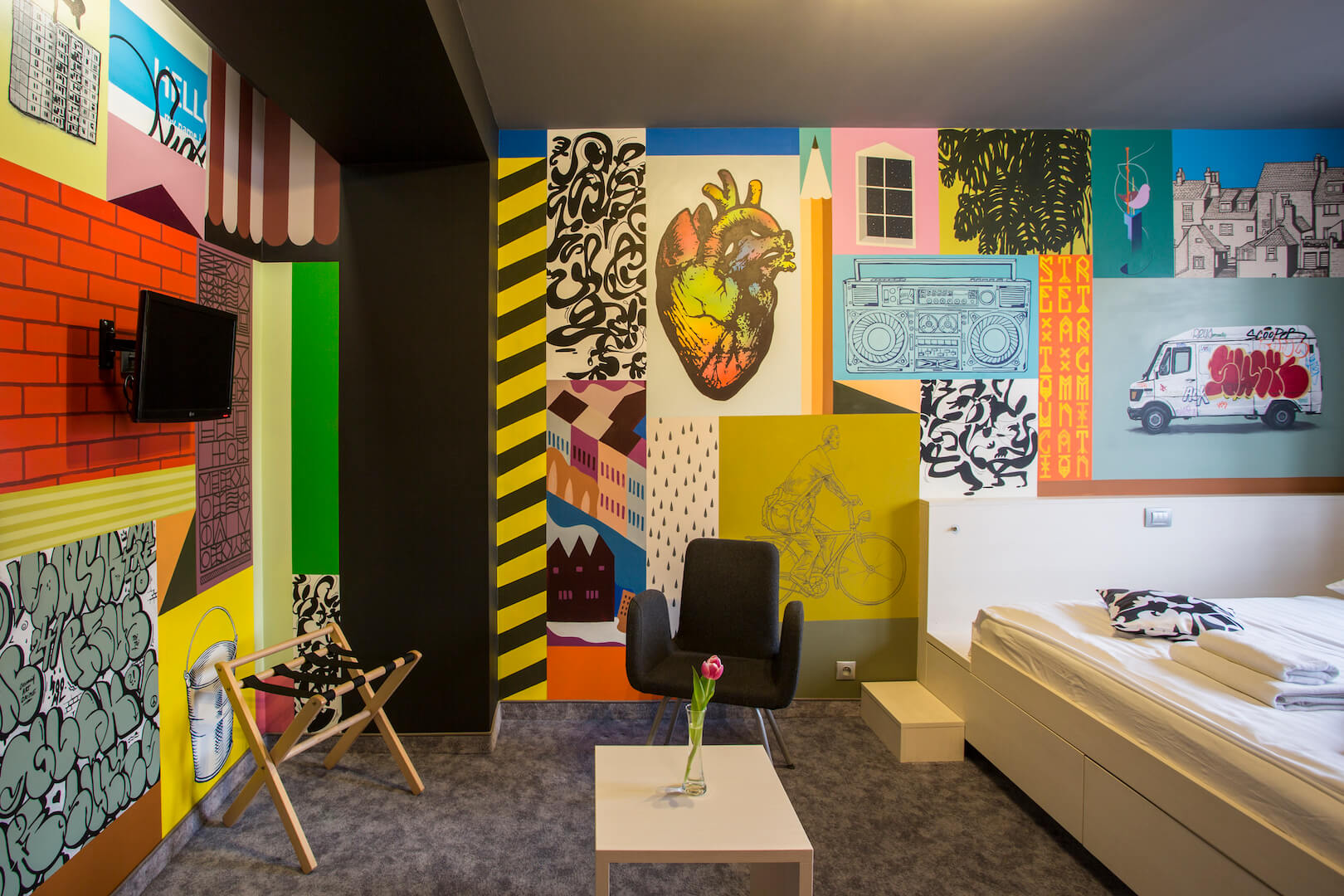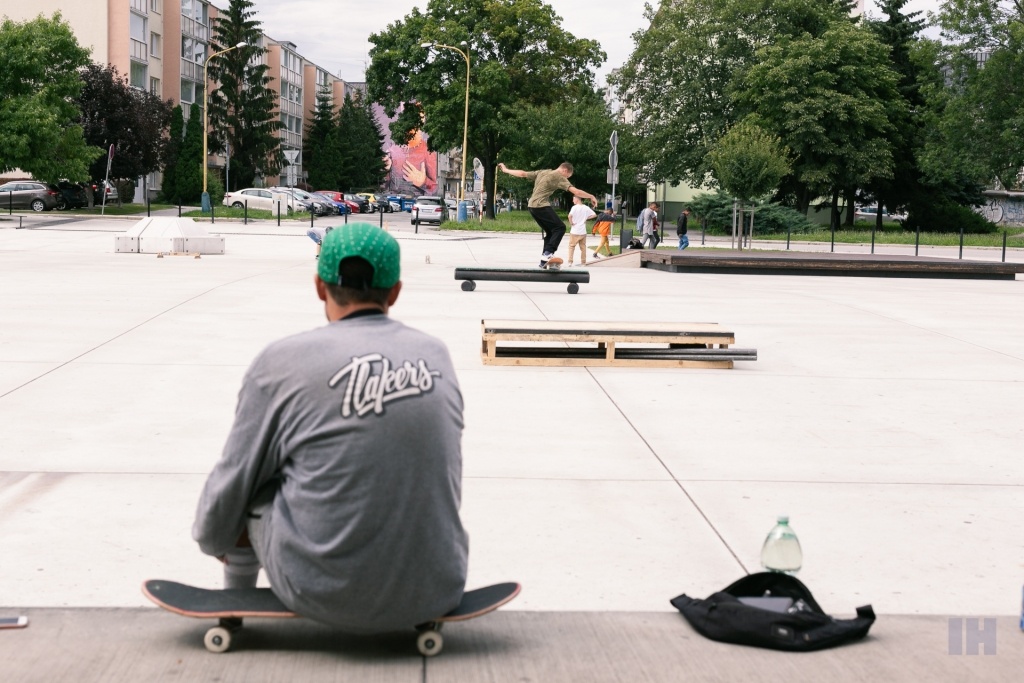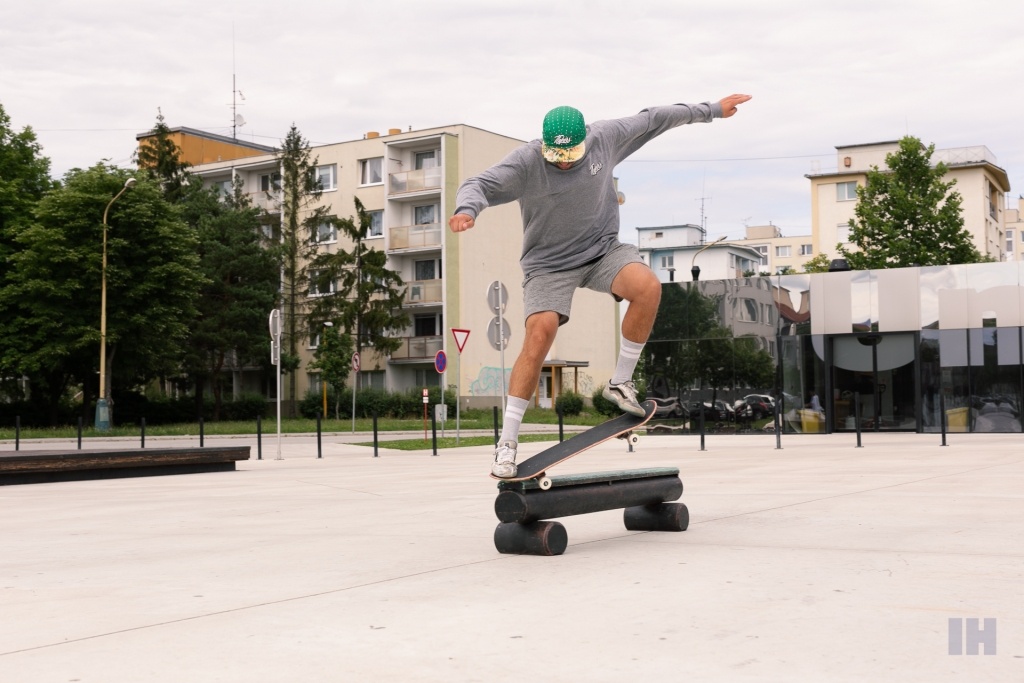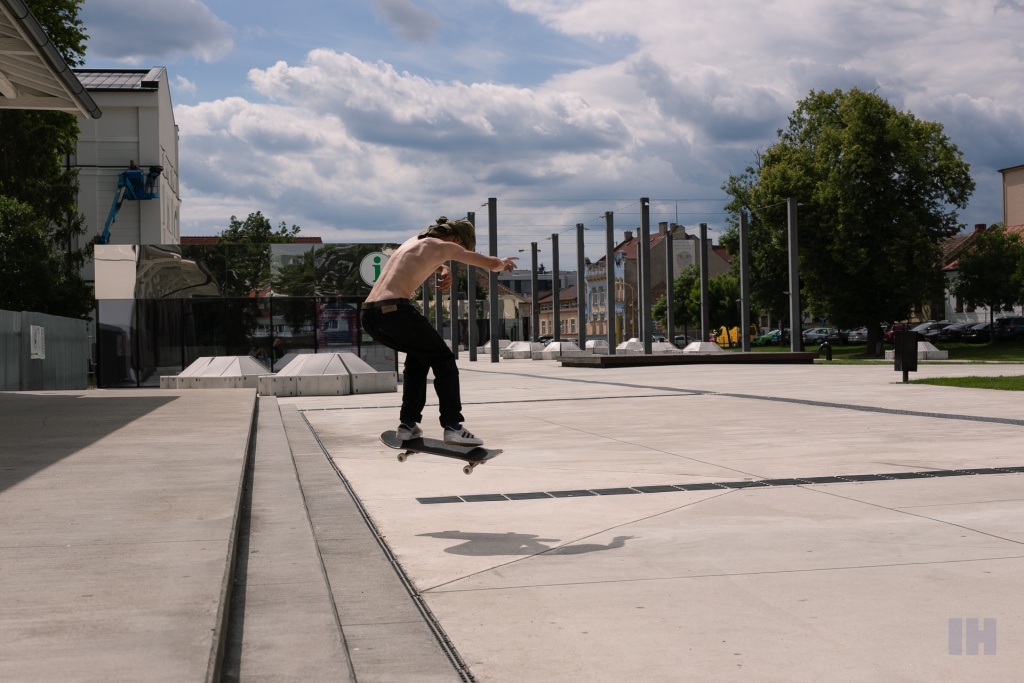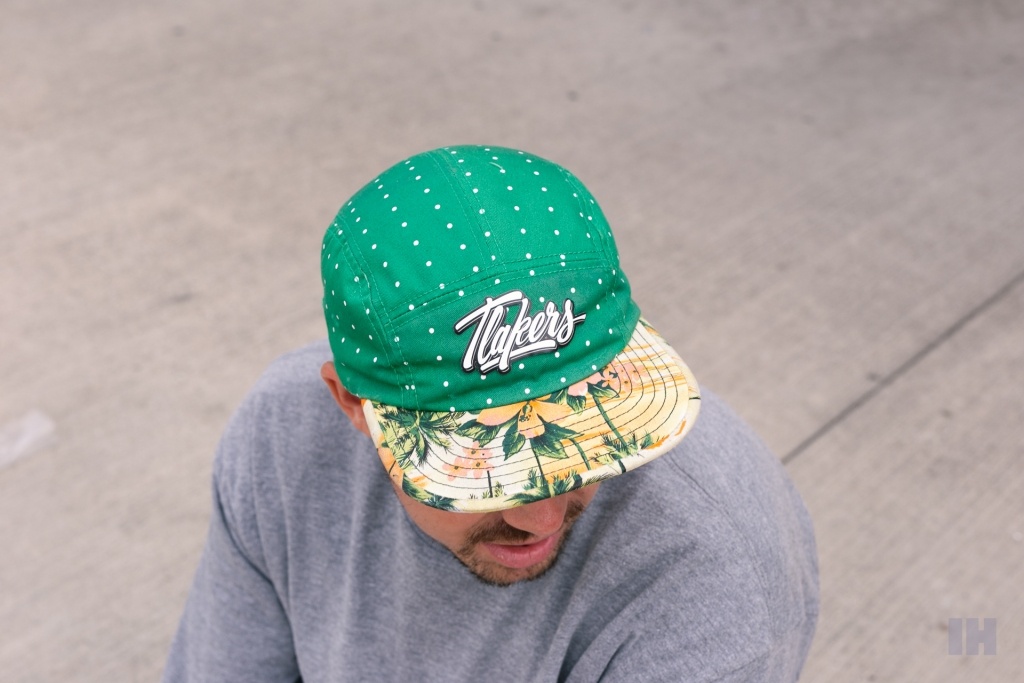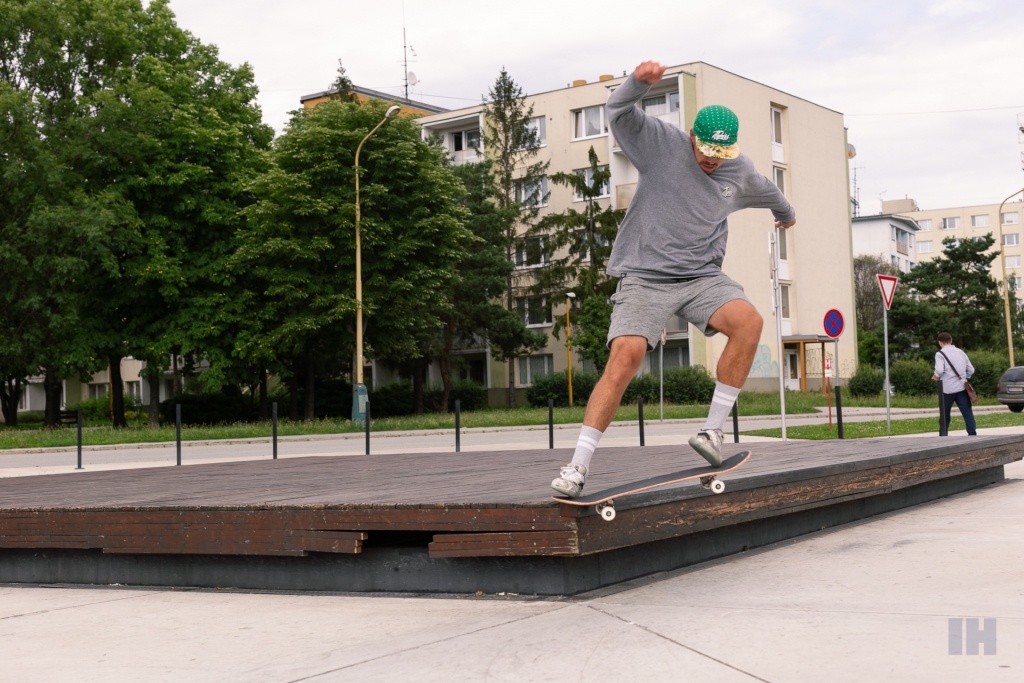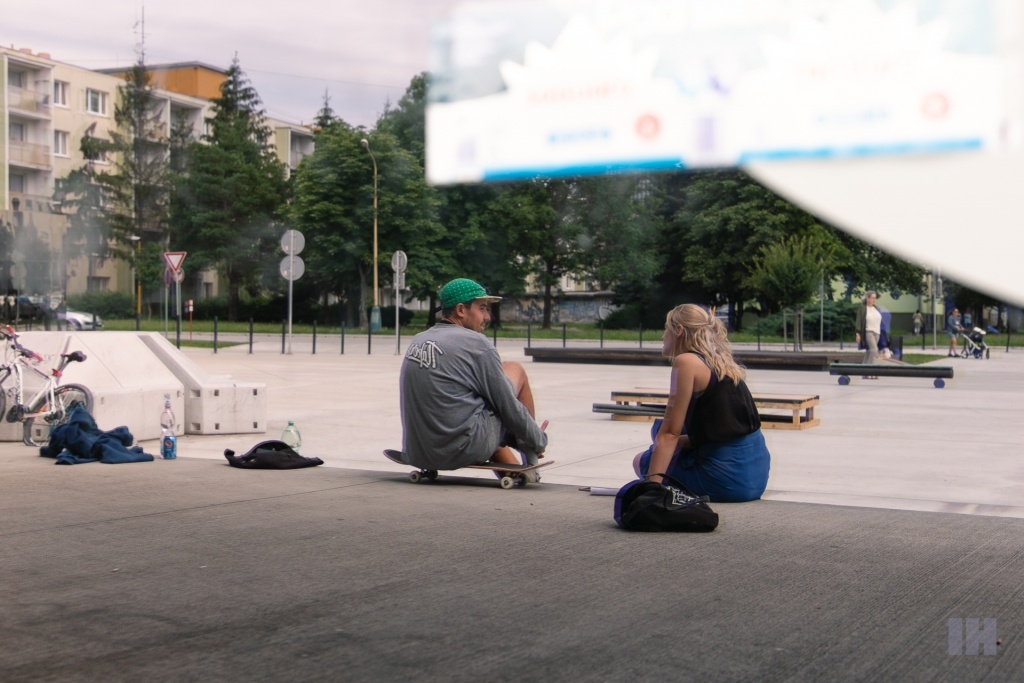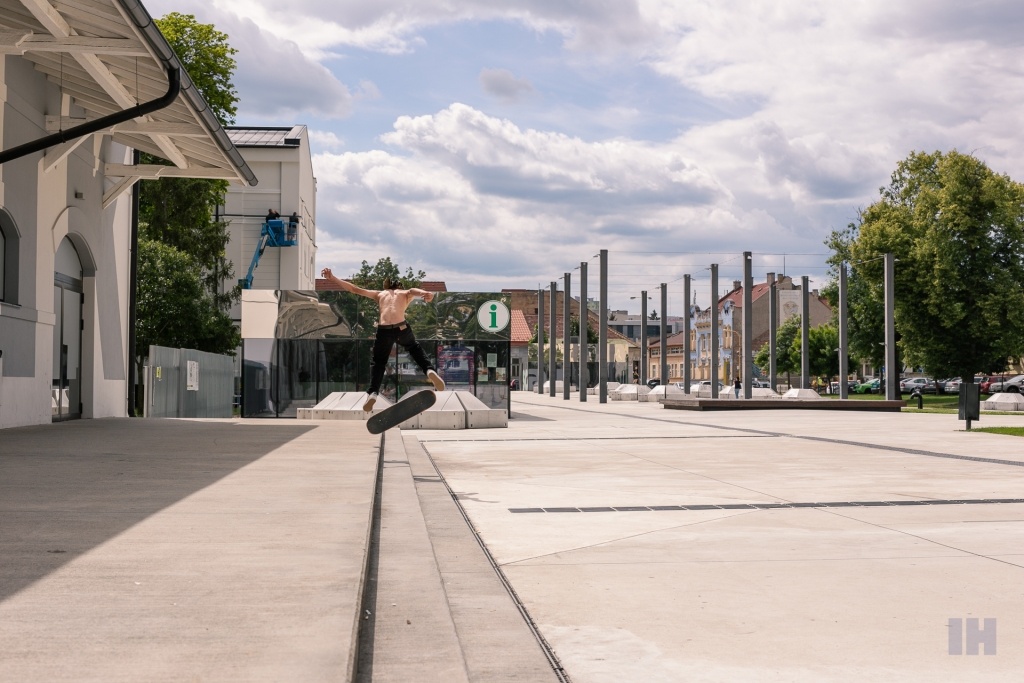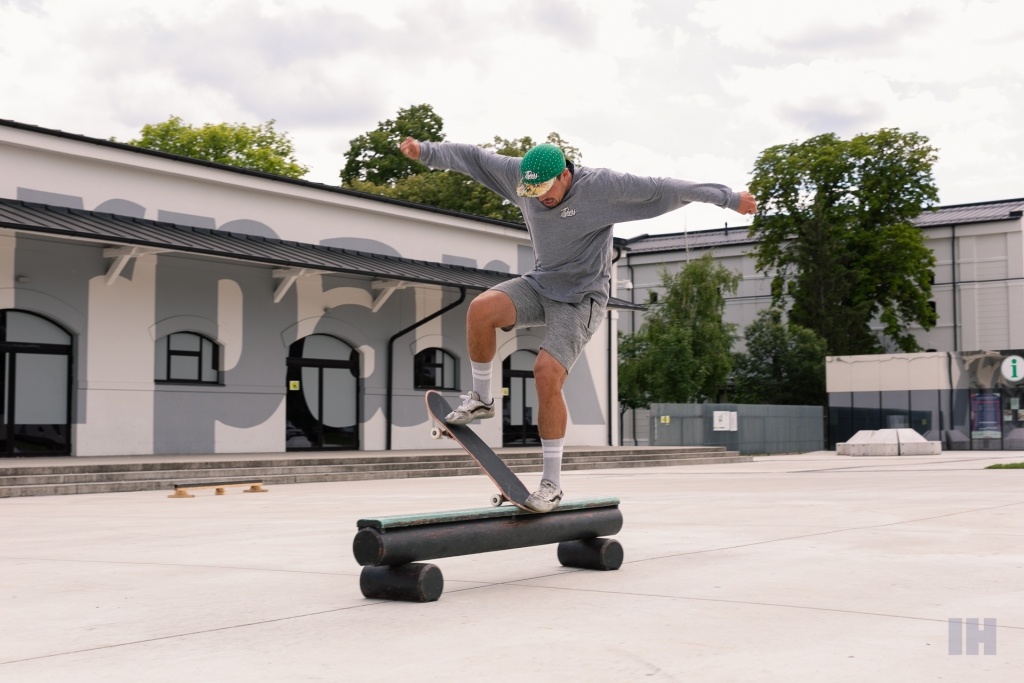Skateboard will always be the love of my life, says Slovak representative Rišo Tury
He became fascinated by a skateboard computer game at the age of six. Ever since then, he has been skateboarding on a daily basis and calls his enthusiasm a lifelong mission. After more than twenty years, Rišo Tury is definitely a top-notch skateboarder as he is one of the three representatives of Slovakia for the sport, which was recognized as an Olympic discipline in 2016. What do hard training and success at the international competitions of a guy from Ťahanovce require and how does he look upon the development of riding in his city over the course of the last two decades?
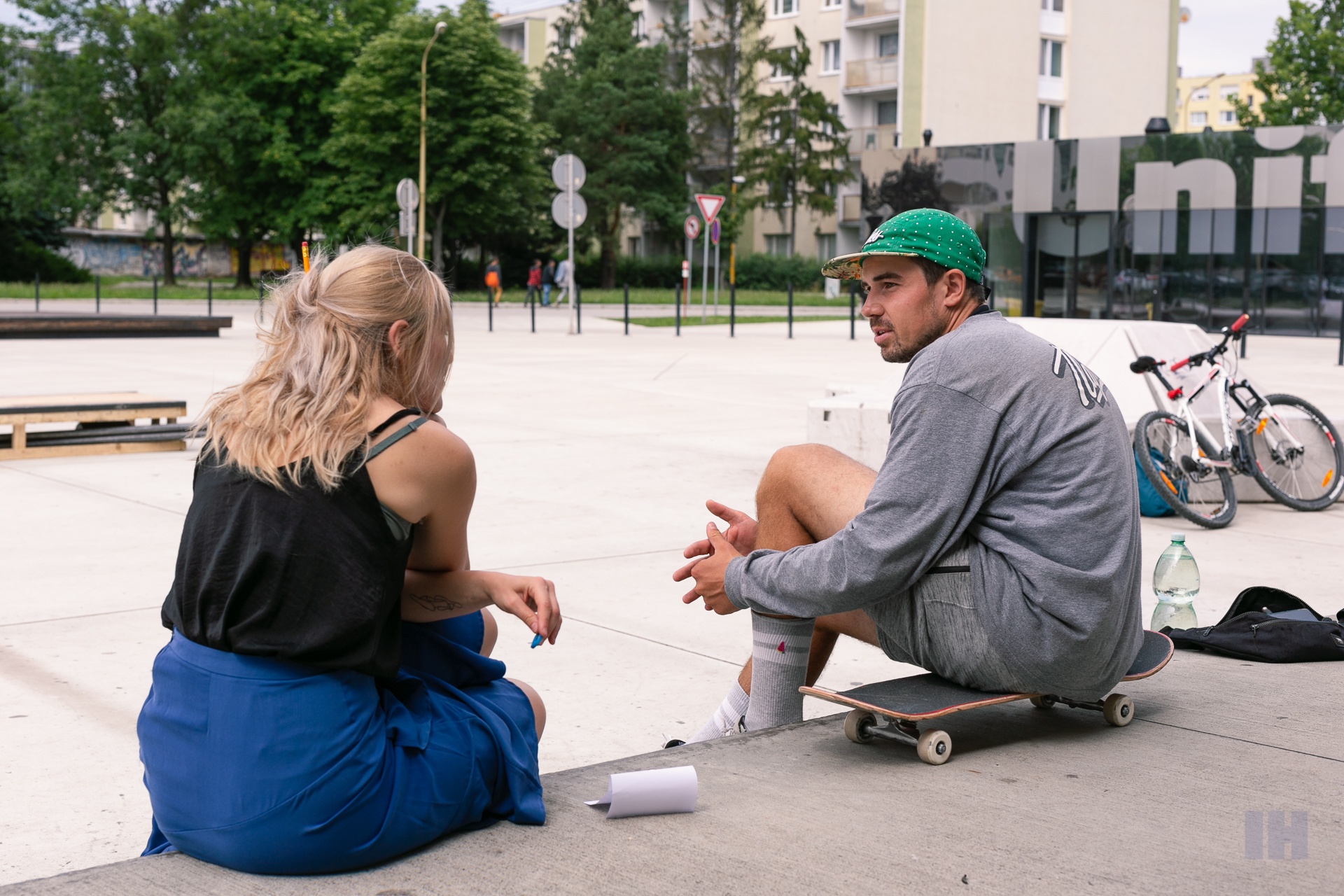
Did you play Tony Hawk Pro Skater 2 too?
Today, he enjoys worldwide success, his own brand and the participation at the upcoming Olympic Games, yet his beginnings in the world of skateboarding were not the easiest. The computer game Tony Hawk Pro Skater 2 literally changed the lives of Rišo Tury and several of his friends when he was only six years old.
“The game was simply not enough for us, we wanted to find out how to ride in real life, too – of course, we immediately found out how terribly difficult it was. We didn’t know anyone, nor did we know where to go to practice. We started on the basketball court in Ťahanovce neighbourhood, where we built various obstacles on our own. The skateboarders of that time rode in front of the Municipality of Košice. Later, they built a concrete skateboard park in the sports complex on Alejová St for us. I believe it wouldn’t have happened hadn’t it been for the older generation of riders who communicated their needs to the city. The result is still the largest skatepark in Slovakia with obstacles in the so-called American style – it was absolutely exceptional for our country to have such a training spot at that time.”
The iron edges changed everything
The skateboarders’ community in the city saw a new light during the reconstruction of Kasárne/Kulturpark as the period of Košice – European Capital of Culture began in 2013. At that time, they had no idea how the area in front of the complex would become a skateboarding spot, allowing riders into the city centre and the public much closer.
“We did not expect such an outcome at all – we had no idea there would be something suitable for our community as well. The area has great conditions – large concrete space, amazing walls. At first, the police banned us from riding there, but over time, Kulturpark has become our unofficial skateboarding spot. We realized the new recognition for riders when they installed iron edges on the wooden walls – skateboarding was suddenly a legal activity in the central part of the city. For me, Kulturpark is a unique place, comparable to the European level – it also reminds me of Letná in Prague. Since 2013, skateboarding here is constant. I would like to say that if it was not possible to ride in front of Kulturpark, this sport would probably disappear. At the same time, it is a chill zone where people like to meet and form communities.”
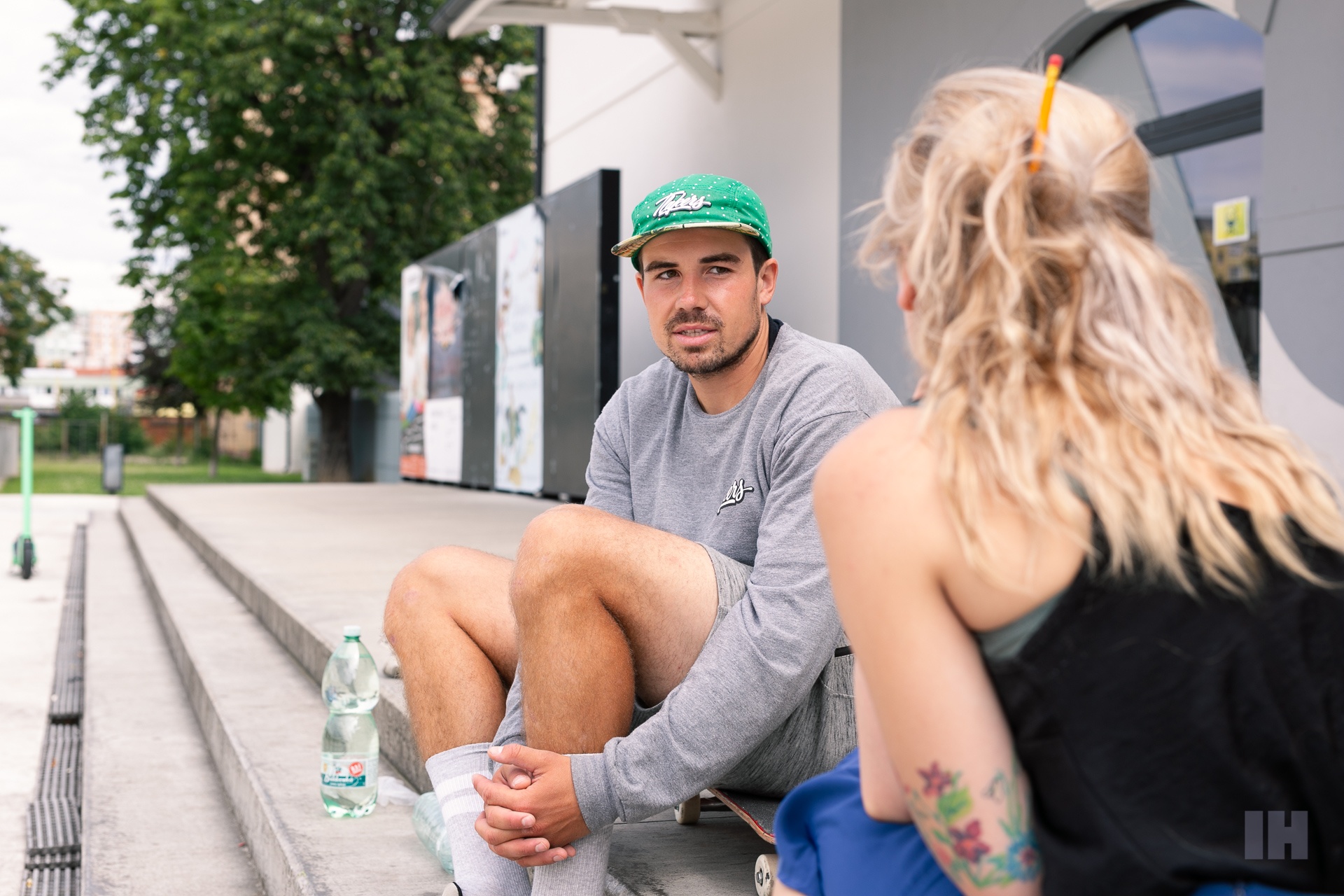
Life goes on even with 3 screws
Literally anyone can come to ride in front of Kulturpark. Rišo claims that the people who meet here are united mainly by their enthusiasm for skateboarding and together they push their and the general level of this sport higher. These days, it is also possible to enrol in a Skateboard Academy Košice with one of the community members. For future skateboarders, the Slovak representative has an important message, though – according to Rišo, the most important thing is first and foremost the patience and the ability to persevere.
“Skateboarding is extremely difficult, you have to sacrifice your whole life if you want to do it on a professional level. It means practising from dawn to dust, working on yourself, devoting your whole soul to it and not getting discouraged by failures and even injuries. It takes hard work and a huge dose of tenacity – it doesn’t come for free and injuries of all kinds naturally belong to it. For example, I have one screw in my wrist and two in my elbow, but my life goes on. Twisted ankles are worse. But generally speaking, all riders share the desire to skateboard, even if they are injured.”
Tlakers
Rišo works closely with his brother Juraj Tury, who is the vice-president of the section of the Slovak Speed Skating Association and at the same time manages Rišo’s activities and participation in international competitions. In more than twenty years of engagement in the world of Slovak skateboarding, the brothers have achieved many breakthroughs and also brought their own brand to the local Košice community as well as the world representatives.
“Our civic association Ťahanovská skate crew gradually formed into Tlakers, for which we decided to found our own company. In 2014, we were determined to make our own skateboards and later clothing collection. Today, our skateboards are made in Spain and we are helped by a friend who is a graphic designer. The community in Košice learned to support us when it became clear that we were bringing something new and of a fine value back to where we started – to our city.”
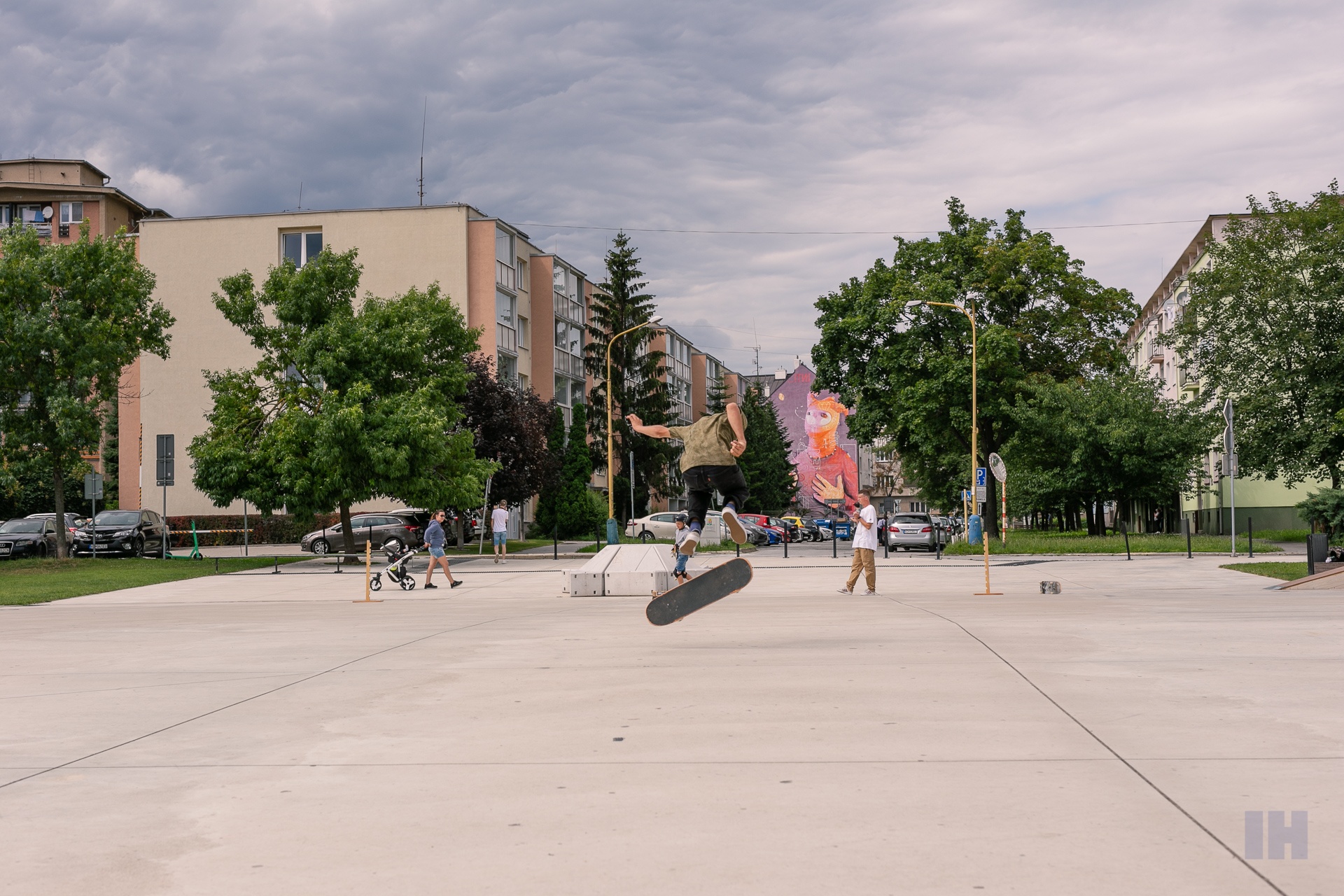
“Skateboarding taught me to live in a different way and look at things from other perspectives. Now I am familiar with completely new forms of patience and I have learned not to push anything. When a person becomes infatuated with a skateboard, he/she should persevere – it’s the love of my life. It can’t be performed on 50%, you have to sacrifice your whole life to it. I am very grateful that I make a living as a skateboarder.”
Cassovia Skate Cup
In addition to their own brand Tlakers, the civic association of Košice riders around Rišo and his brother also contributed to the rebirth of the Cassovia Skate Cup, which has been organized here every year since 2015.
“This competition took place in the 1990s in front of the White House or the Municipality of Košice. We wanted to do something similar, revive this old tradition in the new space in front of Kulturpark and make it better with new obstacles. This has always been the most difficult part of the preparation for the cup – we created obstacles ourselves every year. The whole event required a number of negotiations over permits with the city administration. Finally, for five years in a row, we managed to bring world-known skateboarders to the city, who really liked Košice and stayed here for several days. They were very surprised when we arranged accommodation directly at the area of Kulturpark for them, right next to the competition venue. We also managed to get permission for down-hill riding from the New Hospital on the closed road to the Amphitheater for two years in a row. The Cassovia Skate Cup usually also includes screenings at the Amphitheater and an afterparty at Kino Úsmev or Kulturpark. Unfortunately, the competition will not take place this year due to the coronavirus situation.”
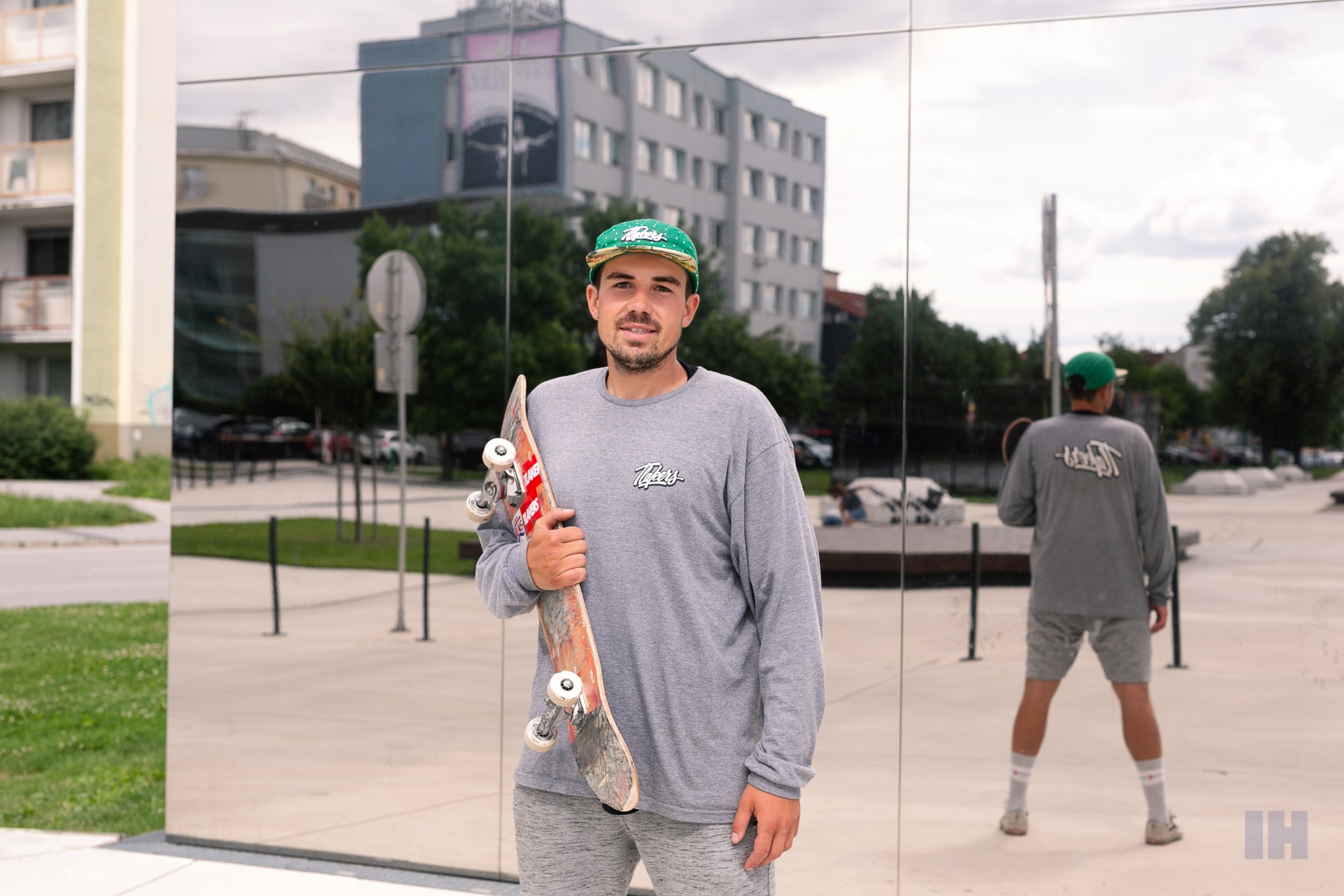
And when will the Olympic skateboarding take place?
In 2016, skateboarding became the official Olympic discipline and the world’s largest sports competition was to take place this summer in Tokyo, Japan. Although the coronavirus made this year’s Olympic Games impossible, Rišo is preparing for the competition in 2021 as one of the three Slovak representatives in this discipline. This includes regular participation in Olympic classifications, daily training in a gym or swimming pool. Under normal circumstances, Rišo constantly travels and spends the winter months most often in Los Angeles or Barcelona, where he trains in the best weather conditions. He is also currently looking forward to the upcoming construction of a new skatepark near the Business Academy in Košice. Last but not least, Rišo skates almost every afternoon in the area in front of Kulturpark.
Don’t forget to book your room in the room Urban Flashbacks by The Invisible Hotel, only a few minutes away from the most recognizable skateboarding spot in Košice.
